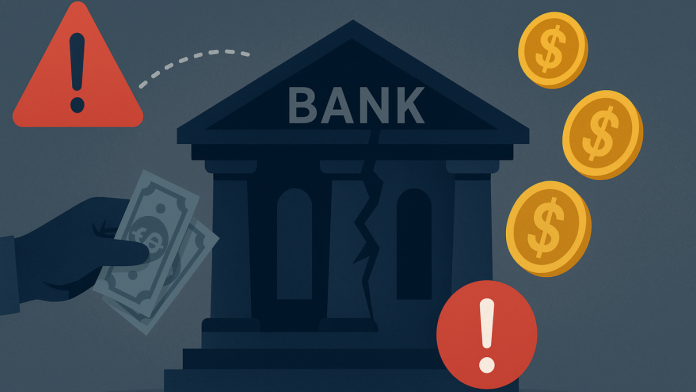A shocking financial scandal has come to light after Juan Francisco Ramirez, chairman of Nodus International Bank, admitted to stealing millions of dollars. Ramirez pleaded guilty to a conspiracy that drained the bank of more than $13.6 million, a scheme that ultimately caused the bank to collapse in 2023.
The investigation revealed that Ramirez, working with co-conspirators, secretly used bank funds for personal gain. They hid their actions from other board members, executives, and the bank’s regulator, the Office of the Commissioner of Financial Institutions of Puerto Rico (OCIF). Their plan violated Puerto Rican laws and Nodus’ own rules about insider transactions.
Authorities said Ramirez abused his powerful position at the bank. Millions of dollars that customers trusted to be safe were secretly redirected for private use. This type of fraud is considered extremely serious because it undermines public confidence in the financial system.
How the Scheme Worked
From 2017 to 2023, Ramirez and his accomplices carried out a complex scheme. They invested over $11 million of the bank’s money in a Miami-based lender. Instead of supporting legitimate borrowers, the lender redirected the money back to Ramirez and his partners.
Matthew Derrick Hudson charged with wire fraud in $100 million U.S. investor scheme
In addition, between 2018 and 2021, Ramirez and his team convinced the bank to buy at least 47 promissory notes totaling more than $25 million from a Miami-based finance company that Ramirez and a co-conspirator jointly owned. These notes were supposed to fund loans for businesses and individuals. Instead, the funds were used for personal expenses, such as mortgages, investments, and credit cards.
The fraud did not stop there. In March 2023, OCIF announced plans to put Nodus into liquidation. Days later, Ramirez and his co-conspirator forced the bank to buy a loan portfolio worth $26 million from their finance company. Most of these loans were nonperforming, delinquent, or uncollateralized. This move relieved the company from its debts to the bank while giving the conspirators direct financial benefits.
Authorities confirmed that every step of these transactions was carefully planned to hide the illegal activity. By creating fake investments and manipulating loan portfolios, Ramirez and his partners ensured their actions appeared legitimate, all while personally profiting from the bank’s money.
Lonnie Smith-Matthews faces federal charges for loan and check fraud in Boston
Legal Consequences and Investigations
Ramirez has agreed to give up at least $13.6 million, representing the stolen funds. He faces a federal sentence of up to 20 years in prison for conspiracy to commit wire fraud. The exact sentence will be determined by a federal judge using U.S. Sentencing Guidelines and other factors.
The case was investigated by the Internal Revenue Service’s Criminal Investigation unit (IRS-CI) and prosecuted by federal authorities. Trial attorneys Javier Urbina and Samir Paul from the Criminal Division’s Money Laundering and Asset Recovery Section, along with Assistant U.S. Attorney Felipe Plechac-Diaz, handled the prosecution. Officials stressed that Ramirez’s actions were a severe breach of trust. Banks hold money that belongs to people and communities, and this kind of fraud undermines confidence in financial institutions.
Authorities also highlighted that corporate leaders cannot misuse their positions to enrich themselves at the expense of the public. Every fraudulent action taken by Ramirez contributed directly to the bank’s failure, causing serious financial and emotional harm to customers and stakeholders.
The guilty plea is an important example of law enforcement holding powerful bank executives accountable. It demonstrates the seriousness with which authorities treat financial crimes and the efforts to protect public trust in the banking system.


